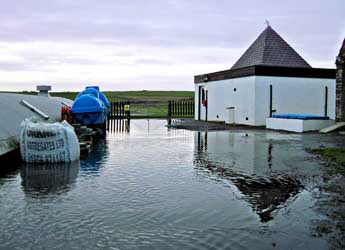School open day – using international education to develop a whole school approach to global citizenship
 Venue: Bo’ness Academy, Falkirk
Venue: Bo’ness Academy, Falkirk
9:30am – 3.00pm
Thursday 17th May 2012
Note: this event was due to place at an earlier date in the year but has now been rescheduled for the date above.
Theme: International Education
This CPD event offers practitioners and school leaders an exciting opportunity to visit Bo’ness Academy and attend Falkirk Council’s Global Citizenship Showcase Event.
Bo’ness Academy is an inspiring example of a school that has used international education as a vehicle to engage the whole school in global citizenship activities. Through the Comenius Programme and other well established links the school has developed a rich international programme connecting it to countries across the world including: The Gambia, The Netherlands, China, France, Germany and The Czech Republic.
A focus of the event will be to identify and share the practical lessons and ideas that have helped the school move forward on its journey including:
- Making global citizenship a key priority in the school and a focus for the implementation of Curriculum for Excellence
- Using international links to explore important issues in a global context and to create engaging, meaningful and challenging learning experiences
- Developing strong international partnerships which can be sustained and which have made an impact on every learner.
Participants will have the opportunity to meet and talk with the Head Teacher, International Coordinator, staff and learners and also tour the classrooms and school. Time will also be set aside for participants to reflect and share their own experiences.
Download Programme for Bo’ness Academy Open Day 17May12
How to book
To book, please contact Megan Farr, Policy Officer, Falkirk Council. Email: megan.farr@falkirk.gov.uk or Tel. 01324 506671.
Places for the open day section of the event are limited so please book early to avoid disappointment. This is a free event!














 An update on The James Hutton Institute’s Water Works competition with the announcement of the April winner.
An update on The James Hutton Institute’s Water Works competition with the announcement of the April winner.





 Our most recent published context for STEM Central “
Our most recent published context for STEM Central “




































